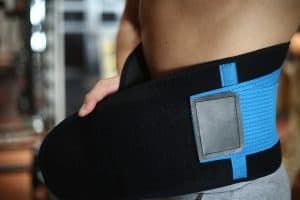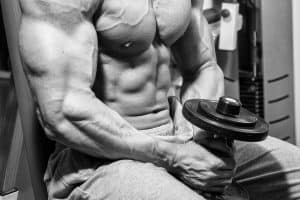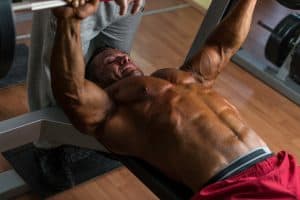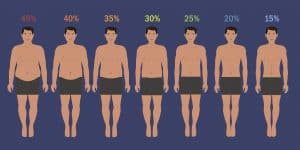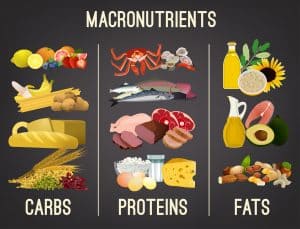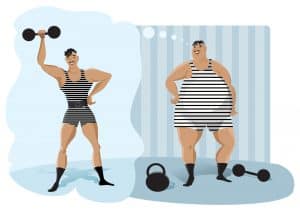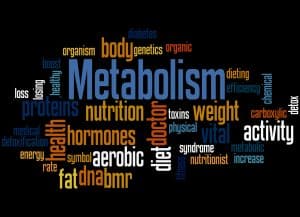Struggling to make those gains in the gym? Are you on the hunt for new methods to build muscle?
I’ve been there—when you’re putting in countless hours at the gym, you want to see progress quickly. But when those changes aren’t visible, it can become disheartening.
How much protein to build muscle? In this article, we let you in on the secrets behind using protein to build muscle, effectively, as well as how much you really need.
- Table of Contents
What Is Protein, Anyway?
Protein—we hear this word bashed around endlessly when it comes to building muscle or training.
Why? Protein is an essential component of a healthy lifestyle, to help build and repair tissues. It’s super effective at keeping your bones, muscles, hair, and nails strong and active.
It’s also needed to produce enzymes. These are super important in producing the chemicals and hormones needed to keep our bodies running like clockwork. An example of this is the process of protein synthesis, which helps to create DNA and RNA for building cells.
Proteins are large molecules, made up of lots of chains of amino acids, like valine, leucine, or isoleucine. The list of amino acids goes on, so the ordering of these chains has endless possibilities. With the huge array of potential amino acid chains to make up the building blocks of these proteins, it’s no surprise that all proteins will vary greatly.
The body only naturally produces some of these amino acids, so the remainder needs to come from the foods we eat.
Due to the way the human body works, the need for different types of protein in our system really depends on our age. For example, as they grow, children need an increasing amount of protein supplemented into their diets to ensure healthy growth.
As we get older, this changes, but we still need to consume protein in our diets to ensure our body is able to create the protein it needs to survive.
Now that we know what protein is good for, it’s no surprise that we need it to build muscle. Without it, our body would be unable to grow or repair our muscles quickly enough to support our exercise regime.
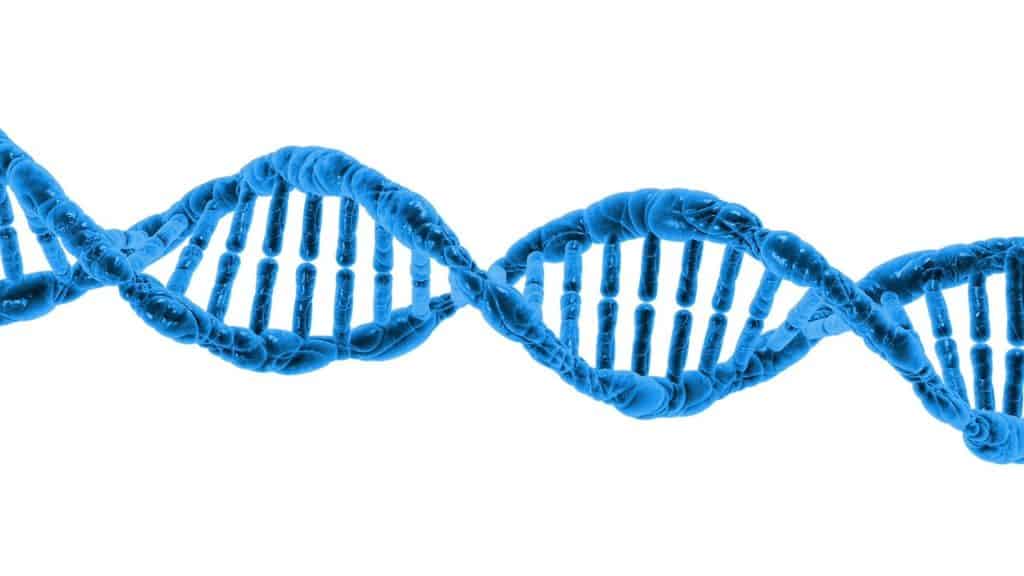
Why Does Protein Build Muscle?
As we’ve already mentioned, protein helps to repair and build muscle tissue, as well as other cells in your body. But why does this happen?
When you consume protein, your body breaks this protein down into its primary building blocks. Remember those amino acids we discussed earlier? Those are the building blocks we’re talking about now.
These amino acids are then used to build the body’s own protein, depending on what your body needs the most.
Have you ever wondered where the term “ripped” came from, or why your muscles hurt after exercising? That’s because your muscles become physically damaged from exercise, and your body needs to find ways to repair this. So, after exercising, your body needs this protein to repair the damaged muscle.
It’s important to remember, though, that protein will not build muscle on its own. You need to break the muscle tissues by training the right way to build this muscle denser and stronger. Sure, protein is essential, but if you’re eating too much of it without using it up, your body will convert it to glucose, and then into fat.
How Much Protein Should I Consume to Build Muscle?
For the average person, the recommended intake of protein is around 0.36 grams per pound of body weight. So if I were to weigh 154 pounds, I’d need 56 grams (154 x 0.36) of protein in my diet each day.
This may not sound like much, but 56 grams of protein might look something like this:
- Two eggs (12 grams), one can of tuna (21 grams), 1 cup cooked pasta (8 grams), 1 cup milk (8 grams), and ¼ cup of nuts (7 grams).
or
- 6 ounces Greek yogurt (17 grams), one chicken breast (19 grams), ½ cup cooked beans (8 grams), and two eggs (12 grams).
In all honesty, that’s definitely more food than it seems, and the possibilities are endless!
So if you’re attempting to gain weight in muscle mass, you’ll need much more protein in your diet than this.
With weight training, you are damaging the muscle tissues. If you do not meet the required amount of protein, the body will use the muscle tissues themselves as a source of protein and you will end up losing muscles.
The average person needs about 0.63 to 0.8 grams of protein per pound of lean body mass. For strength training, you might want to consume at least 1 gram (and up to 2 grams) of protein per pound of body weight.
To clarify this further, here’s how you work out how much protein you need to consume:
- Decide how much protein to consume, between 0.63 and 0.8 grams. If you’re just starting out, you should probably stick to the lower end of the spectrum. If you’re training almost every day, though, aim for the higher end.
- Then, multiply your weight in pounds by your chosen amount of protein (in grams), see above.
- Et voila! You have your answer.
Researchers tested this out and found that increasing your protein intake any higher than this bracket would not aid protein synthesis anymore. So, it would be fruitless to consume any more protein than described above.
Consuming a high protein diet, keeping in mind everything above, will be the best way to build muscle. Just remember, the heavier you get, the more protein you’ll need to consume. By using the simple formula, you can work this out in no time at all.
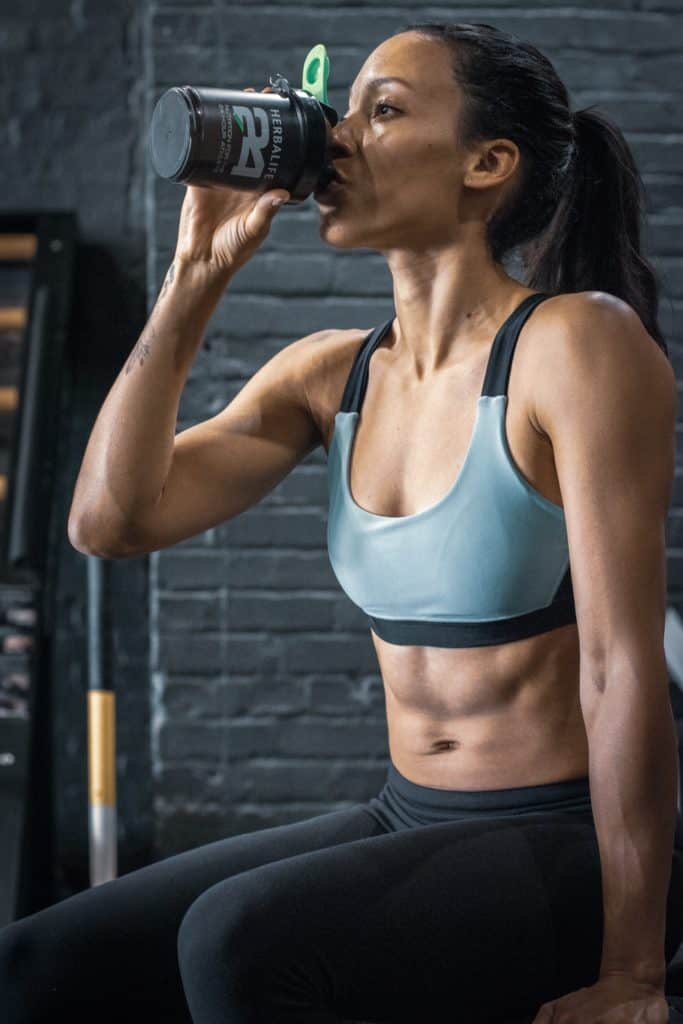
How Can I Consume More Protein in My Diet to Build Muscle?
I’m sure you’re now probably wondering where you can get this protein from. It’s not actually that difficult. Whether you’re a meat eater or not, here are some ways you can get that much-needed protein to build muscle:
I’m sure you’re now probably wondering where you can get this protein from. It’s not actually that difficult. Whether you’re a meat eater or not, here are some ways you can get that much-needed protein to build muscle:
Food
There is a real array of different foods you can get your protein needs from. Some of these include:
- Fish, meat, or meat substitutes, like tofu, seitan, or tempeh. You could even head over to the vegetarian/vegan freezer section, where they have all kinds of fantastic meat substitutes.
- Dairy, like eggs, cheese, milk, or milk substitutes.
- Beans, such as kidney beans, pinto beans, or black beans. These are super nutritious, and are surprisingly packed full of protein. Pulses, like lentils, are also delicious, healthy, and full of protein.
- Nuts are actually a really effective way to get additional protein and fat into your diet. If you get peckish, have these as snacks alongside your daily meal plans.
You could also pack protein into delicious smoothies using nut-butters, like peanut butter and almond butter, as well as yogurt, seeds, and oats. As with all of these options, the possibilities really are endless. Have fun with it! There’s no need to eat a boring diet when it comes to building muscle.
Supplements
Workout supplements are an important way to get all the macro and micro-nutrients you need to keep your body running smoothly. You can find all sorts of protein powders on the market, like whey protein, pea protein, soy protein, and hemp protein. These are a great way to consume more protein, in a hidden source. Perhaps you could sprinkle this on top of your breakfast cereal, or even cram it into a delicious smoothie.
Obviously, if you’re looking to build muscle, this is an inherent benefit to consuming a lot of protein. However, protein also has a number of other health benefits, which keep you feeling energized and alive:
- Protein (especially organic and grass-fed) is fantastic for keeping your bones healthy and strong. If you’re aiming to build muscle in the gym, this is very important to ensure your workout remains safe and controlled.
- Linking onto this, as protein helps keep your bones strong, this will also allow you to remain fit as you get older.
- Due to the nature of protein, it’s super filling, so will help you avoid snacking on unhealthy foods. If you’re looking to build muscle, snacking on sugary treats will set you back, as it basically just becomes fat in your system. By consuming this additional protein, you might just combat this.
- Protein can help lower your blood pressure. This is never a bad thing, as it’s always important to keep your cardiovascular health running smoothly, particularly when exercising intensely.
- As we’ve already mentioned, protein is ideal for helping your muscles to grow and repair. This will speed up your recovery, not only after working out, but also after injury too.
- Finally, protein also has a positive effect on your hair, skin, and nails. Not only will you look toned and muscular, but you’ll also look even more stunning than you did before.
Health Risks of Consuming a High Protein Diet to Build Muscle
As we’ve already discussed, eating too much protein can be problematic. If you consume too much without utilizing it in the gym, your body will store it as glucose.
This is great for keeping your energy levels up, as your body will release it over time. However, if it’s not burnt off, it will be stored as fat. Not ideal, right?
Some other risks include:
- Protein can actually cause dehydration. With the additional protein comes extra nitrogen and, when the body flushes this out, it also flushes out a lot of water.
- Too much protein could also increase your risk of kidney damage. This is because your kidneys have to work double time to rid themselves of the additional nitrogen and waste products the protein gives off.
- Animal protein in high doses can also increase the risk of developing cancer or heart disease. However, no-to-low fat protein will considerably lower this risk due to minimal amounts of saturated fats and cholesterol.
The 3 Most Effective Tips for an Effective High Protein Diet to Build Muscle
So how can we combat these potential risks? And what other tricks are there to help you build muscle?
Stay Hydrated
Combatting the risk of dehydration is pretty simple—just drink more water. As you’ll be exercising, your body will lose a lot of water through sweat. With these two issues, consuming an extra 2 to 4 pints a day should compensate.
This will not only keep the body functioning smoothly, but should help you avoid cramping up in the gym.
Cut Back on Vegetables to Replace with Protein
Vegetables are a great way to not only add nutrition to your diet, but they also bulk it up too. This is ideal for weight loss, as these vegetables can keep you full for longer, without the need to snack.
Veggies have carbohydrates. Both carbohydrates and protein provide the same amount of calories per 1 gram; which is 4 calories.
Instead of filling your plate with veggies, try replacing them with more protein-filled substitutes. Perhaps some nuts or beans instead? The choice is yours.
By doing this, your body will fill up on the nutrition it needs to build muscle in an effective way.
Prepare Meals Ahead of Time
I’m sure you’re fully aware of what meal prep is but, for any novices, I’ll explain it briefly here.
Meal prep consists of putting aside a few hours each week specifically to prepare your food for the days ahead. You could cook a load of different meal components, like carbs, protein, and veg, to pick and choose from each day. Or you could package up specific meals in containers to keep in your fridge or freezer.
Whatever works best for you. By doing this, you can just grab the meal and go, without the hassle of having to cook anything—simply heat it up, and dig in.
This just means that you’ll save so much time in the long run, which is much needed when you’re training often. Going to the gym to build muscle really does take up a lot of your time. Taking a short time out of your weekend, for example, to prepare the week’s food may seem like a lot of effort, but will save you time during the week.
Additionally, by preparing your meals beforehand, not only will you ensure you take in enough protein to build muscle, you’ll also avoid snacking. We’ve already expressed the dangers of eating too many sweet treats when building muscle. By pre-preparing protein-filled snacks and meals, you’ll avoid the risk of temptation. If you’re not sticking to any specific diet, this video from Rocio Laura has some great options.
Now we’ve done the hard work for you, there really is no excuse. Meal prepping is super easy, cheap, and achievable for anyone. Get cooking!
Takeaway
So what have we learned? Well, we know that consuming a high protein diet is the best way to build muscle. We also now know that you need to consume between 0.63 and 0.8 grams of protein per pound of body mass.
Additionally, we’ve broken down some of the key benefits and risks of consuming a high protein diet to build muscle, and how to combat these risks. It’s actually a lot simpler than it looks! By following our tips and tricks to building muscle on a protein-filled diet, you’ll be on your way to reaching your bodybuilding goals.


